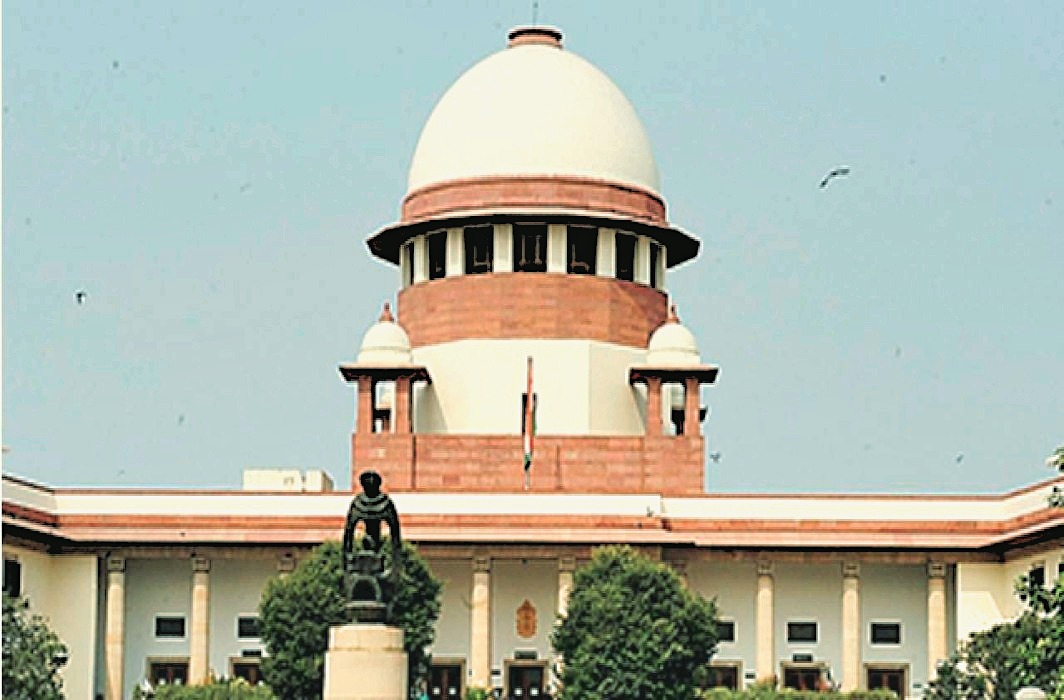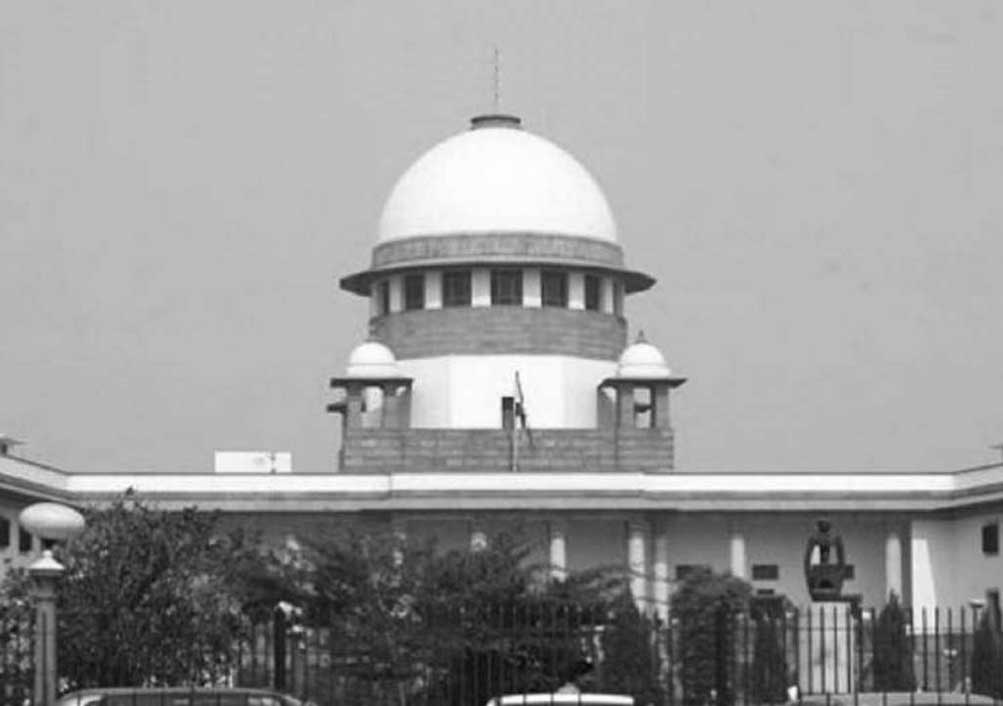If document seeking to convey immovable property ex-facie reveals that conveyer does not have title over the same, specific declaration that document is invalid would not be necessary: SC
Justices Aniruddha Bose & Sudhanshu Dhulia [09-04-2024]

Read Order:KIZHAKKE VATTAKANDIYIL MADHAVAN (DEAD) THR. LRS v. THIYYURKUNNATH MEETHAL JANAKI AND ORS [SC- CIVIL APPEAL NO. 8616 OF 2017]
Tulip Kanth
New Delhi, April 10, 2024: The Supreme Court has observed that if right, title or interest in certain property is sought to be conveyed by a person by an instrument who herself does not possess any such form of entitlement on the subject being conveyed, even with a subsisting deed of conveyance on such property, the grantee on her successors-in-interest will not have legal right to enforce the right the latter may have derived from such an instrument.
The Division Bench of Justice Aniruddha Bose & Justice Sudhanshu Dhulia was considering an appeal which arose out of a suit for partition instituted by one ThiyyerKunnathMeethal Chandu (Chandu) claiming 8/20 shares in the suit property. The appellants were the defendants in the said suit, and were successors-ininterest of one Sankaran.
The latter and Chandu were uterine brothers, both being the sons of one Chiruthey, who was married twice. Her first husband was Madhavan, within whose wedlock Sankaran was born. Madhavan passed away sometime before the year 1910, though the exact year of death has not been specified in the pleadings nor it has appeared in evidence. After Madhavans death, Chiruthey contracted second marriage with Neelakandan, who was the father of Chandu.
The Trial Court sustained the claim for partition and decreed in favour of the plaintiff therein whose interest was represented by the respondents. The First Appellate Court set aside the decree and dismissed the suit. The main issue before the Court was whether Chiruthey had any title over the subject-property which the plaintiff claimed through the series of transactions.
The Bench was of the opinion that the First Appellate Court had rightly come to a finding that Chiruthey had only a reversionary right over the suit property held by her first husband Madhavan and the plaintiff (Chandu) could not claim partition right on the strength of his being a uterine brother of Sankaran born to Chiruthey after she contracted her second marriage. She lost all her rights and interests in her deceased husband's property on contracting second marriage with Neelakandan.
It was observed that when Chiruthey contracted her second marriage by operation of Section 2 of the 1856 Act, she had lost title of her share over the property of Madhavan. The High Court in the judgment under appeal, however, primarily relied on the deeds executed on 14th July 1910 to sustain the claim of Chandu (since deceased), represented by his successors-in-interest.
As per the Bench, on remarriage of Chiruthey, after the death of Madhavan, her title or interest over the suit property stood lapsed in terms of Section 2 of the 1856 Act. Thus, Chiruthey's right to deal with property derived from Madhavan stood extinguished so far as the deed of 14th July 1910 is concerned (Exhibit A-20). But it was not Chiruthey alone who had executed that instrument, it was Nangeli and also Sankaran, (son of Chiruthey) who had executed it and remained valid legal heirs of Madhavan (since deceased).
Finding no material that Madhavan had any other legal heir, the Bench opined, “...even if we discount Chirutheys title over the property forming subject of lease, it stood conveyed by its actual owners i.e., Nangeli and Sankaran. To that extent, we accept the validity of the lease deed, that was otherwise proved in the Trial Court. Once we find the Exhibit A-20 to be valid conveyance, we do not think the corollary transaction which is marked as Exhibit A-1 bearing No.2329/1910, by which the same property was leased back to Chiruthey and Kuttiperavan to be invalid.”
These back-to-back transactions may be unusual, but in absence of any evidence pointing to any illegality, the Bench held them to be valid. The High Court on finding that these deeds are valid restored the Trial Court's judgment and decree. The underlying reasoning of the High Court was that Chiruthey had legitimate right over the property. The Bench, however, found a flaw in this reasoning of the judgment of the High Court.
“The High Court as also the Trial Court have held that since the deeds were proved, implying that Cheruthey had the right to execute the lease deed on 14th July 1910 so far as the deed of re- lease is concerned, the same might entitle her to be the beneficiary as a lessee thereof. But it would be trite to repeat that even if subsistence of a deed is proved in evidence, the title of the executing person (in this case Chiruthey) does not automatically stand confirmed. If a document seeking to convey immovable property ex-facie reveals that the conveyer does not have the title over the same, specific declaration that the document is invalid would not be necessary. The Court can examine the title in the event any party to the proceeding sets up this defence”, the Bench added.
“If right, title or interest in certain property is sought conveyed by a person by an instrument who herself does not possess any such form of entitlement on the subject being conveyed, even with a subsisting deed of conveyance on such property, the grantee on her successors-in-interest will not have legal right to enforce the right the latter may have derived from such an instrument”, it added.
The plaintiff (now represented by his successors as respondents) sought to claim his share of suit property through Chiruthey. But the Bench opined that Chiruthey had lost her right over the subject property on her contracting second marriage.
Also, her status over the said property, post-1910 if at all was that of lessee. There was no indication in any of the deeds that the said lease could travel beyond the stipulated term of twelve years. The ownership of the suit property could not be said to have devolved in any manner whatsoever to the original plaintiff, who was born within the wedlock of Chiruthey and Neelakandan.
Thus, allowing the appeal, the Bench set aside the decision of the High Court and confirmed the decision of the First Appellate Court.
Sign up for our weekly newsletter to stay up to date on our product, events featured blog, special offer and all of the exciting things that take place here at Legitquest.




Add a Comment